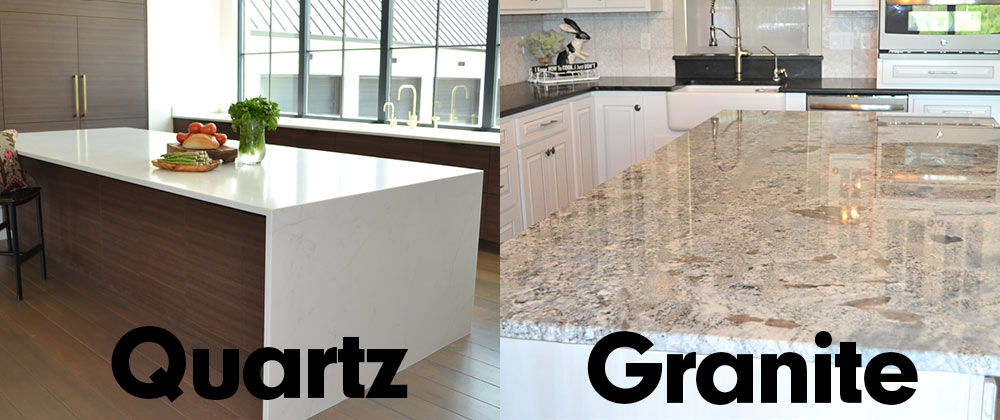Introduction: When it comes to selecting the perfect countertop for your kitchen, two materials frequently come to mind: quartz and granite. Both options have their unique advantages and aesthetic appeal, making the decision challenging for homeowners. In this post, we will explore the benefits of each material, helping you determine which countertop is right for your kitchen.
- Understanding Quartz and Granite
- Quartz: A man-made material composed of about 90-95% crushed natural quartz crystals combined with resins, polymers, and pigments. This process allows for a wide variety of colours and patterns, making quartz highly customizable.
- Granite: A natural stone that is quarried and cut into slabs. Each granite slab is unique in appearance, showcasing the natural beauty of the stone with variations in colour and veining.
- Durability and Maintenance
- Quartz:
- Non-porous, which makes it resistant to staining and bacteria. This property means that spills can be easily wiped away without leaving a mark.
- Resistant to heat and scratches and chips although care should still be taken as damage is possible with excess exposure.
- Requires minimal maintenance; regular cleaning with soap and water is usually sufficient.
- Granite:
- Extremely durable and resistant to heat, scratches, and chips. However, it is porous and requires sealing every 1-2 years to prevent staining.
- While maintenance is slightly higher than quartz, regular cleaning and sealing can keep granite looking beautiful for years.
- Aesthetic Appeal
- Quartz:
- Available in a wider range of colours and patterns due to the manufacturing process. It can mimic the appearance of natural stone or offer vibrant colours and unique designs.
- Granite:
- Offers a timeless, natural look that appeals to many homeowners. Each slab has a unique pattern, adding a sense of individuality to your kitchen.
- Cost Considerations
- Quartz:
- Generally more affordable than granite, with prices varying based on quality and design. Installation costs can also be lower due to the ease of handling and cutting.
- Granite:
- Typically comes at a higher price point, especially for exotic varieties. The cost may also increase based on the complexity of the installation process.
- Environmental Impact
- Quartz: The manufacturing process can consume more resources and energy. However, many quartz brands are now using eco-friendly practices and sustainable materials.
- Granite: Being a natural stone, it has a smaller carbon footprint if sourced locally. However, transportation of granite can increase its environmental impact.
Conclusion: Ultimately, the choice between quartz and granite comes down to personal preference, lifestyle, and budget. Quartz offers versatility and low maintenance, while granite boasts natural beauty and durability. Consider your kitchen’s design and how you plan to use the space to make an informed decision.

